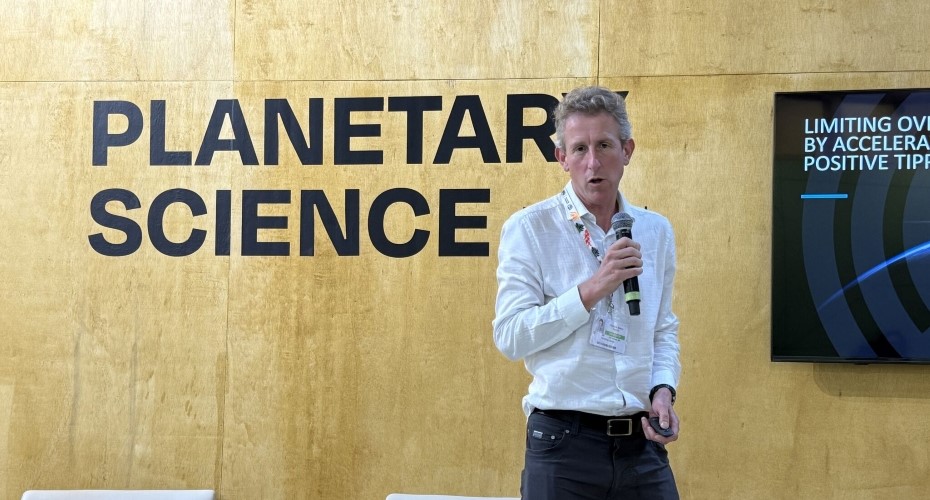Exeter delivers on global stage at COP30

Professor Tim Lenton, Global Tipping Points Report lead, speaks at COP30. Photo: Stuart Brocklehurst
The University of Exeter played a significant role at COP30 as it aimed to help combat climate change through its world-leading climate science.
Highlights from the University’s packed itinerary in Belem included the launch of the Global Carbon Budget, the leading academic authority on global carbon emissions and sinks, which is now in its 20th year.
The University and its partners launched the Parliamentarians’ Global Guide to Climate Change and Climate Solutions, a comprehensive guide for lawmakers around the world, and findings from the second Global Tipping Points Report, released in October, were presented and discussed at various events throughout the conference.
Exeter’s rainforest experts showcased international research collaborations, including AmazonFACE, AmazonSOS and CSSP Brazil, which explore the role of tropical forests as carbon stores and for sustaining biodiversity and ecosystem services.
Dr Marcos de Oliveira Jr from Exeter’s Nature and Climate Impact Team spoke on a number of panels on subjects including how AI can be used to fight climate misinformation.
Creativity and culture were also given a platform at COP30 with We Are The Possible: Planet Forest, a partnership between Exeter, the British Council and the Met Office that brought together more than 250 scientists, educators, artists and youth leaders for a project that used art, music and storytelling to inspire climate action in future generations.
Stuart Brocklehurst, Exeter’s Deputy Vice Chancellor (Business and Innovation) and Director of Green Futures Solutions, was there in Belém, and spoke at 28 separate events that ranged from panels on climate-resilient business leadership to the launch of the new Parliamentarians’ Global Guide.
He said: “Keeping authoritative science at the heart of discussions on climate policy has never been more important. Exeter’s experts played a key role at COP30, presenting business leaders and policymakers alike with reliable, insightful analysis, making clear the consequences of inaction and providing solutions to pull us back from the most devastating potential scenarios ahead.”
For more details about Exeter’s work at COP30 see: https://greenfutures.exeter.ac.uk/our-impact/cop30/



